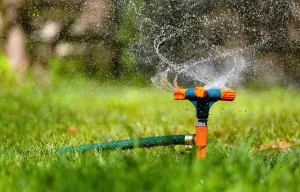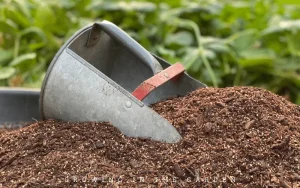A fragrant herb garden is not only a sensual pleasure, but also a rewarding endeavor, infusing your culinary creations with fresh and vibrant flavours. Whether you are an experienced gardener or new to gardening, planning and building an herb garden can be a satisfying and enjoyable experience. In this article, we explore the art of herb garden planning and offer practical tips to help you grow your own lush, thriving herb paradise.
- Why herb gardens are important: An herb garden is a versatile addition to any home, balcony or patio. They provide a constant supply of aromatic and flavorful herbs that enhance the taste and aroma of dishes. In addition, herbs provide various health benefits and can even improve your mood. With proper planning, your herb garden can be a sustainable source of freshness and health.
- Choosing the Right Herbs: Choosing the right herbs for your garden is the foundation of successful herb gardening. Think about the types of dishes you often prepare and your personal preferences. Popular herbs such as basil, mint, rosemary, thyme, and parsley are great choices for beginners. Choose a mix of culinary and herbal to create a varied and functional garden.
- Location and sun: Herbs thrive in sunlight, so choose a location that receives at least 6-8 hours of direct sunlight per day. A sunny windowsill or balcony can do wonders if you’re short on space. Make sure the location you choose has well-draining soil to avoid standing water, as most herbs prefer slightly drier conditions.
- Containers and plants: Container gardening is an ideal option if you have limited space or poor soil quality. Use pots, planters, or even transformed containers like mason jars for an inviting touch. Provide adequate drainage by placing gravel or small stones in the bottom of the container. Plant herbs with a quality potting mix, remembering to space them properly to avoid overcrowding.
- Watering and maintenance: Consistent and proper watering is key to a thriving herb garden. Herbs generally like to dry out a bit between waterings, so avoid overwatering. Covering can help retain moisture and regulate temperature. Prune your herbs regularly to promote bushy growth and prevent them from getting leggy.
- Harvesting and using herbs: The nice thing about an herb garden is the harvesting. Once your herbs are mature, start harvesting by cutting off the leaves and stems. Use them right away or dry them for later. There are many uses for herbs, such as adding to salads, pulling oil, making tea or as a garnish for cocktails.
- Pest Control and Companion Planting: To ensure the health and vitality of your herb garden, it is important to address potential pest problems. Introducing companion plants is a natural and environmentally friendly way to deter pests. For example, planting marigolds or nasturtiums next to herbs can help repel aphids and other insect pests. Also consider introducing beneficial insects such as ladybugs and lacewings to control pest populations.
- Year-Round Herb Gardening: While many herbs thrive in the warmer months, you can increase the productivity of your herb garden year-round. In colder climates, you can bring potted herbs indoors and place them in a sunny spot. You can also consider growing indoor herbs such as chives, parsley and mint. By providing sufficient light and proper care, you are assured of a constant supply of fresh herbs, even in winter.
- Creative Herb Garden Design: Enhance the beauty of your herb garden by incorporating creative design elements. Explore a variety of container options, from traditional clay pots to playful planters made from recycled materials. Vertical gardening with hanging baskets or wall planters can maximize space and create eye-catching displays. Don’t hesitate to experiment with different layouts and arrangements to create a unique and visually appealing herb garden.
- Share the Bounty: As your herb garden flourishes, you may come across a plethora of herbs. Consider sharing your catch with friends, family, or neighbors. You can also discover the joy of homemade herbal gifts such as infusion oils, herb bundles or homemade spice mixes. Sharing a bountiful garden harvest is a great way to foster community connections and spread the love of fresh herbs.
- Learn and Grow: Herb gardening is a continuous learning process. Don’t be discouraged by initial setbacks or challenges, see them as opportunities to expand your knowledge and improve your skills. Participating in gardening forums, attending workshops and reading gardening books can provide valuable insights and connect you with a community of gardening enthusiasts.
Conclusion
Embarking on an herb garden planning journey opens the door to a world of flavors, aromas and natural beauty. By choosing herbs carefully, taking care of their needs and incorporating creativity, you can cultivate a thriving herb garden that enhances your cooking and brings joy to your everyday life. From tasting the first harvest to sharing the garden’s bounty, every step of the process is a rewarding experience. So roll up your sleeves, dig in and watch your herb garden bloom, a testament to your dedication and love of nature.
Frequently Asked Questions
1. What Is Herb Garden Planning And Why Is It Important?
Herb garden planning involves the careful selection, design and cultivation of garden spaces dedicated to growing herbs. This is important because it allows you to create a sustainable source of fresh and flavorful herbs, enhance your culinary creativity, and enjoy nature’s bounty at home.
2. What are some popular herbs for beginners to consider?
For starters, popular herbs to consider are basil, mint, rosemary, thyme, parsley, and chives. These herbs are relatively easy to grow and can be used in a variety of dishes.
3. Can I grow herbs indoors?
Absolute! Many herbs can be successfully grown indoors, especially in a well-lit location such as a sunny windowsill. Make sure they get full sun and proper care.
4. How do you prevent pests in the herb garden?
Joint planting is a natural way to deter pests. Planting marigolds, nasturtiums or other insect repellent plants next to herbs can help deter harmful insects. Introducing beneficial insects such as ladybugs is also an environmentally friendly method of pest control.
5. How often should I water my herbs?
Herbaceous plants generally prefer slightly drier conditions between waterings. It is very important to allow the topsoil to dry before watering again. Overwatering can lead to root rot and other problems.



